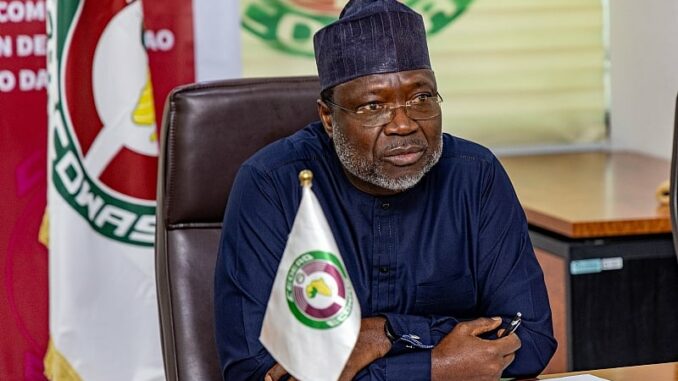
As the region fights a resurgence of insurgent attacks, the West African political bloc ECOWAS said on May 21 that plans to create a long-awaited “regional counter-terrorism force” are “in full-gear.”
Recent attacks in Nigeria and Benin have put the region to the test, with insurgents taking advantage of tense ties between ECOWAS members and Mali, Niger, and Burkina Faso, who left the Economic Community of West African States at the start of the year.
The withdrawal has hindered intelligence and cooperation between regional militaries, as insurgent groups in the Sahel operate across porous border areas. “Countries have indicated their preparedness to contribute troops,” Omar Alieu Touray, the president of the ECOWAS Commission, stated in a Wednesday interview with France 24. In March, Mohammed Badaru, Nigeria’s minister of defense, declared that the force would “ensure the safety and security of our citizens.”
In April alone, insurgents in northeastern Nigeria killed over 100 people by attacking military installations and local communities.
There hasn’t been much time for rest because of the ongoing attacks this month. 54 soldiers were killed last month by al-Qaeda-affiliated insurgents who have also increased their attacks on military targets in neighboring Benin. The Government of Benin attributes the attacks on its territory to a spillover of violence from Burkina Faso and Niger, both of which are fighting protracted insurgencies.
According to Touray, regional security initiatives are being hampered by the tense ties between ECOWAS and the junta-led governments of Mali, Niger, and Burkina Faso, who have established their own bloc known as the Alliance of Sahel States (AES). Cross-border patrols and intelligence sharing were disrupted in March when Niger withdrew from a joint task force it had formed with Nigeria, Cameroon, and Chad to fight insurgents around Lake Chad.
